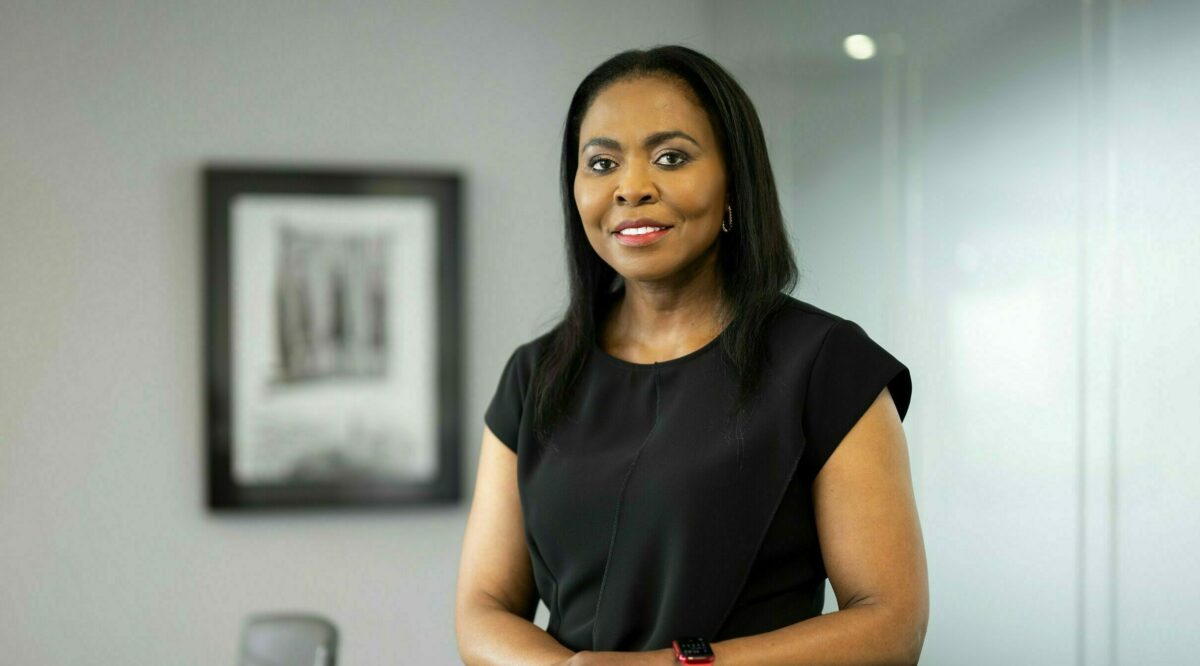12 October 2023
By Jeanett Modise, Chief People Office, Absa Group
The emphasis on rights and equality in the workplace has never been more pronounced and important than it is today. We are living in a time where diversity, equality and inclusion is at the forefront of conversations taking place both in, and outside, of the boardroom.
Interestingly, as we celebrated Women’s Month, the gender agenda was in focus on the sports field as the Netball World Cup in Cape Town and the 2023 Women’s Soccer World Cup in Australia ignited debate around gender equality in sport. While these competitions sparked as much frenzy and excitement as men’s sports, issues around the unequal pay for women players versus their male counterparts, inadequate sponsorship of women’s sports and televised sports time came to the fore.
For many of these women who are professional players, they still require a full time job in order to sustain themselves and their families while their male colleagues can fulfil their professional passion on a full time basis, with full pay.
It is now widely recognised that there needs to be more investment into women’s sports if women are to compete on an equal footing with men. And the same can be said of the challenges women face daily in corporate environments and other sectors of society.
It is incumbent on us as business leaders to recognise that women form the backbone of our society, and to create opportunities to ensure that they are able to extend this role into the workplace. At Absa, we believe in equal opportunity for all and actively seek to encourage diversity in the work environment because we know that diversity drives creativity and harnesses the power of our differences.
In line with this, we made the decision in 2021 to adopt the month of August as Women’s Month for all of Absa. We use this month to reaffirm Absa’s commitment to the gender agenda, communicate the significant progress made on our commitments and to celebrate our colleagues.
This celebration is important. While our journey to date has not been without its challenges, we believe that creating opportunities for women in the workplace requires a concerted effort where we focus on building psychological safety and break the unconscious biases that exist. This is significant as it will enable conscious decision making across all processes.
We are making strides in achieving change; strides that are being acknowledged externally with Forbes ranking Absa as a top African organisation championing women at work, achieving 36th place out of the 400 international companies listed.
We take our role to accelerate the advancement of women, both within Absa and externally in all our markets where we operate, demonstrating our commitment to being an active force for good, seriously.
The introduction of a range of women focussed initiatives across the Group aligned to our Women’s Manifesto including the Absa Ignite Her, Women Empower Her, Women in Tech, and Women in Risk, have yielded key successes. With the Ignite Her programme launched in 2019 we have trained over 600 women colleagues with a further 60 currently enrolled. In addition over 3 000 male and female colleagues have benefited from the Ignite Her masterclasses, which remain open to all colleagues. To date, the programme has delivered about 4% higher promotion rates, around 3% higher lateral mobility rates and approximately 9% higher retention rates of programme alumni compared to non-participants.
Overall, in 2022 we celebrated over 64% of all promotions in Absa being awarded to women as well as more than 50% of all new appointments being women. Critically, these improvements are being made across the board with 44% (2021: 42%) of promotions directed to females at senior management and 56% (2021: 54%) and 76% (2021: 66%) of promotion opportunities within middle and junior management, respectively, directed to women. These are key achievements when we look at ‘future proofing’ our gender parity.
Pleasingly our African regional operations have also progressed with increased representation from 33% to 35% at senior management levels, with a slight increase to 40% (39.7% in 2021) at middle management levels.
We are seeing these changes reflected across the continent with the World Economic Forum 2022 Global Gender Gap Report showing that Sub-Saharan Africa has the sixth-highest regional score and has bridged 67.9% of its gender gap, registering its highest gender gap score in 16 years. Looking at the continental achievements, Namibia ranks 8th and South Africa 20th out 146 countries surveyed. At the present rate it would take 98 years to close the gender gap in the region, a gap which we are looking to close far sooner.
Is it enough though? No, not yet. Our role as a significant contributor both locally and across the African continent means we have a pivotal role to play in not only changing our business but in affecting change on a large scale. Change that will enable a future where the question of gender representation will no longer be relevant.
We are committed to addressing the shortcomings of the past that resulted in under-representation of women in leadership responsibilities in our organisation. As such, our diversity and inclusion criteria are included on our leaders’ performance scorecards to ensure continuous improvement in representation across all management levels. These are in place across each of the countries we operate in.
As an organisation, we have laid a strong foundation and we are now poised to scale our efforts and create sustainable transformation – we have the appetite to drive knowledge, and support to enact change to create a gender-inclusive environment.
.png)
.png)
.png)
.png)
.png)
.png)
.png)

.png)
.png)



